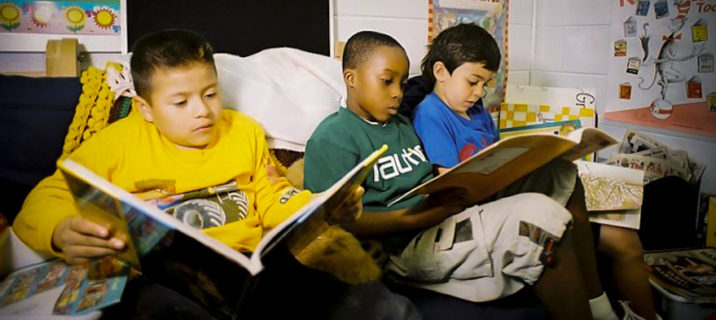From the multiple teacher strikes around the country to reports that prove our students are falling behind in their achievement, it’s clear that this has been a big year for education in the US. The Center for American Progress published a new report outlining the biggest challenges facing K-12 education in the US, in addition to the priorities that need to be taken to address them. This report has been released at the perfect time as presidential candidates are taking the stage and outlining their policy priorities. The report also addresses disparities between white and non-white students, and with race being deeply connected to many of the educational inequities mentioned, we have to center the conversation around this. As a classroom teacher, much of the data pointed out in the report only solidifies the inequities that I have attempted to disrupt inside my own classroom. Educators around the country are watching and waiting for the important conversations yet to take place on the national stage, namely the state of K-12 public education in our country.
State level politicians, as well as many presidential candidates, have mentioned making either early childhood education or higher education a priority for education budgets. Both of these priorities would be taking excellent steps towards strong educational outcomes for students, but the fact is that the majority of a child’s education occurs during the K-12 years.
The new report, A Quality Education for Every Child, stated that, “as the 2020 elections near, the conversation about how to change the direction of the country will gain even more prominence…candidates for national office are presenting ideas for how to increase access to high-quality early childhood education and how to make higher education more accessible and affordable. And yet, with a few prominent exceptions, presidential candidates have not yet taken clear positions or staked out big ideas on how to ensure that every child has an excellent school.”
The teacher strikes in Los Angeles, Oakland, and other cities around the country have been successful and have made it clear that teachers around the United States are calling attention to the conditions that make it challenging to achieve strong educational outcomes to students. The report further cited that, …“the recent teacher strikes and walkouts brought to light, public school teachers make less than other comparable professionals in every state; in 2018, they earned 13.1 percent less on average, when accounting for non wage benefits.” While teacher salaries were just one of the reasons teachers decided to strike over the last few months, it was definitely an area that received much media attention. A handful of presidential candidates have discussed teacher salaries, but not in great detail. Compensation for teachers is a conversation that needs to occur.
The report addressed the need to focus on inequities by making race a critical lens within education politics, preparing all students for higher education, increasing our investment in public schools, among a few other items.
Educators and the families, students, and community leaders have demonstrated their political power with the massive strikes and demonstrations to support prioritizing public education in this country. I have no doubt that the same political power will go into the 2020 election and have a significant impact on the outcomes at the polls. It’s time for politicians to act on the outlined actionable priorities within this report. The report asks that we acknowledge the racial inequities that exist among white students and non-white students and form policies to disrupt it through this lens. We cannot simply ignore that there exists a “$23 billion gap in funding between predominantly white and predominantly nonwhite school districts.” We need to fix this with the sense of urgency that it deserves, instead of throwing around terms like “teacher salaries,” “student achievement,” and other educational jargon as a hopes to gain traction as the election season begins. It’s time for all of us to act on these issues, we’ve had enough discussion.

